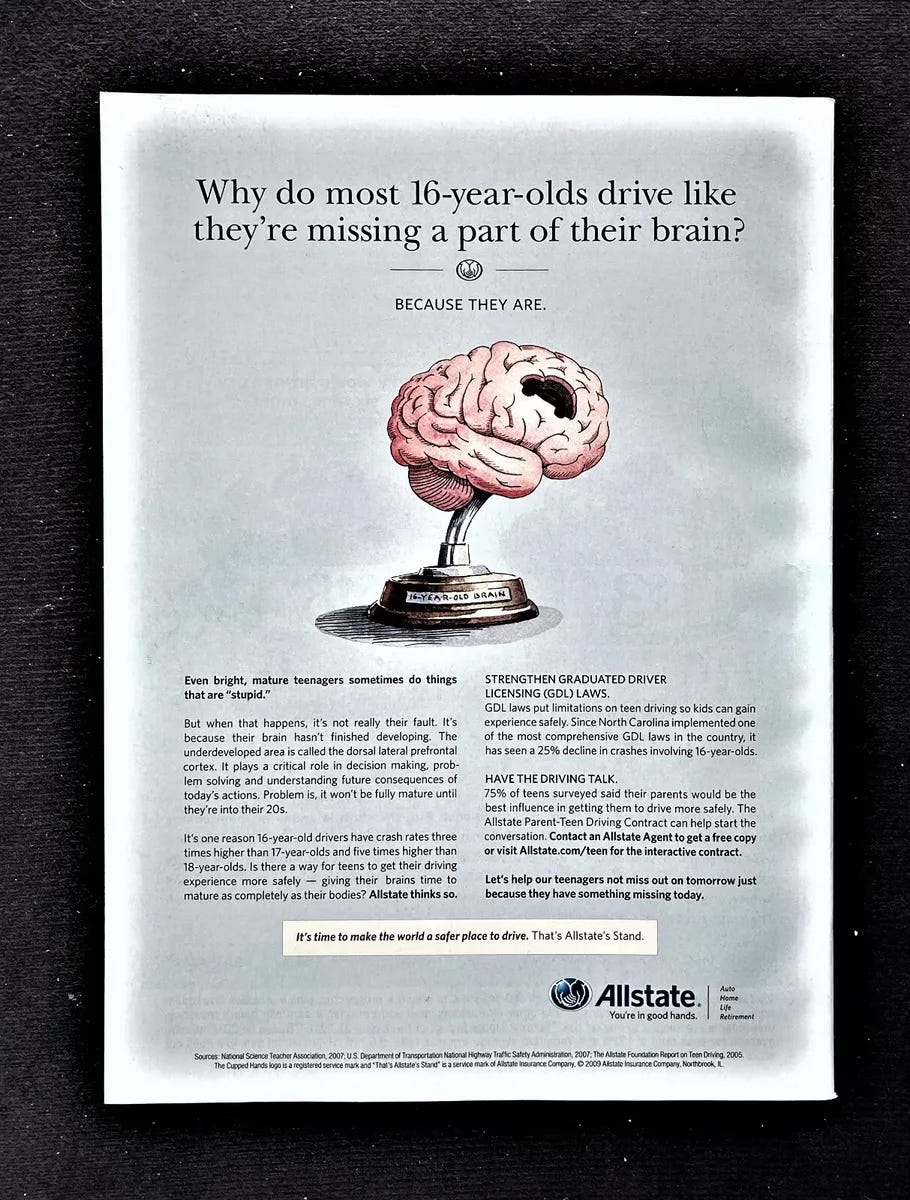No, adolescents' brains aren't "missing" anything, they are just developing.
Tervo-Clemmens and colleagues (2023) make a strong case for a common, domain-general developmental trajectory of executive functions.
Catchy headlines have to be…well…catchy. So I understand why Allstate insurance1 produced a magazine ad like this one:

I just wish they had changed the headline. Teens aren’t “missing” a part of their brain. It’s not as if they cannot make certain kinds of decisions. Instead, as Allstate wrote in the text below, adolescents’ brains are still developing. So, as a result, they sometimes struggle to make good decisions, or struggle to make the decisions that adults might hope they would make. But there’s nothing “missing” from the adolescent brain. They’ve got the tools, they’re just not fully adept at using them, yet.
This distinction matters because an appropriate conceptualization of the adolescent brain helps us to understand what we should and should not expect from adolescents, and how we can best help them. In a really comprehensive and rigorous study, Tervo-Clemmens et al. (2023) have shown that executive functions (i.e., the mental capacities used to direct, sustain, and guide thinking, among other things) have a common, non-linear developmental trajectory: a big jump in performance in middle adolescence (10-15 years old), another smaller jump in late adolescence (15-20) and a final stabilization around age 20. The paper is excellent and goes into a lot more detail about other debates in the field of executive functions. But the take-home is that age-related differences in thinking are matters of quality and efficiency, not type (i.e., adolescents aren’t “missing” a part of their brain) and that development ends around age 20, rather than 23 or 25, as posited in other research.
So, let’s continue constructing appropriately accommodating environments for adolescents (e.g., graduated driver’s licenses, which was the point of the Allstate ad) but let’s also expect adolescents to practice and use their executive functions. They’re not “missing” anything, and adults should not assume so.
Full disclosure: Allstate is my insurance provider, but I don’t have any other relationship with them. ↩